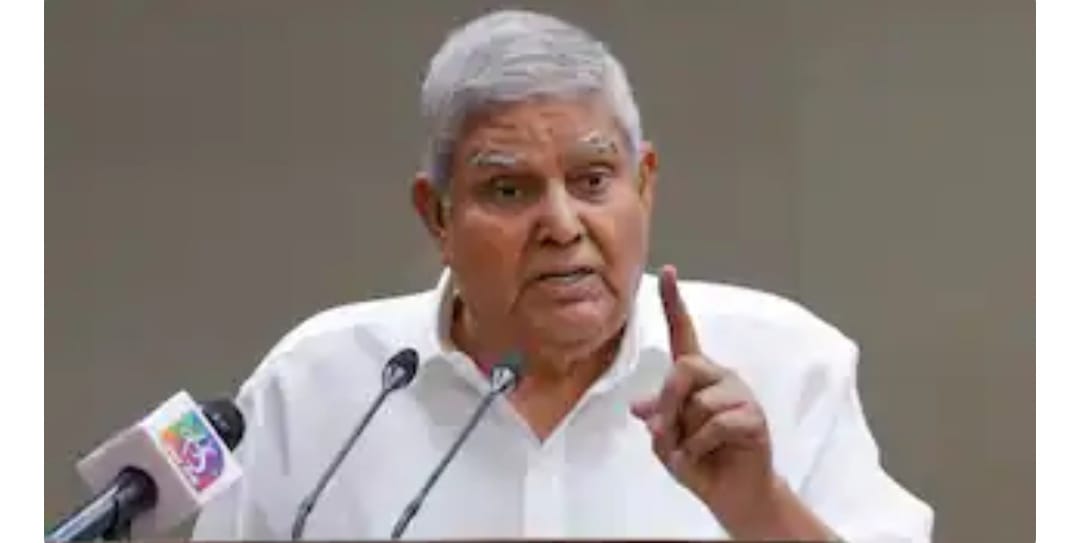
'Article 142 has become a nuclear missile', Vice President Dhankhar was angry at which decision of the supreme Court?
Jagdeep Dhankhar: Last week, for the first time, the supreme court set a time limit of three months for the President and Governors to approve the bills. The Vice President has objected to this.
Jagdeep Dhankhar
Vice President jagdeep dhankhar has expressed displeasure over the supreme court setting a deadline for the President and Governors to approve the bills. He said that we cannot have a situation where the courts give instructions to the President of India. He said that the special powers given to the court under Article 142 of the Constitution have become a nuclear missile available 24/7 against democratic powers.
Under Article 142, the supreme court of india can give any order, direction, or decision to do complete justice, no matter in which case. Vice President jagdeep dhankhar said that india had not imagined a democracy where judges would make laws, handle the work of the executive themselves, and act as a super parliament.
'The post of the President in india is very high'
The Vice President said, "The post of the President in india is very high and the President takes an oath to protect, preserve, and defend the Constitution, while ministers, Vice President, MPs, and judges, among others, take an oath to follow the Constitution. We cannot create a situation where you give instructions to the President of India and that too on what basis? The only authority you have under the Constitution is to interpret the Constitution under Article 145 (3)."
Addressing the 6th batch of rajya sabha trainees, the Vice President said, "I refer to the recent events. They are pressing on our minds. On the night of 14 and 15 March, an incident took place at the residence of a judge in New Delhi. Nobody knew about it for seven days. We have to ask ourselves questions. Is the delay understandable? Forgivable? Doesn't it raise some fundamental questions?"
Vice President jagdeep dhankhar emphasized the separation of powers and said, "The executive, the government, is elected by the people. The government is accountable to Parliament, the government is accountable to the people in the election. The principle of accountability is in operation there. In Parliament, you can ask important questions because the governance is from the executive."





 click and follow Indiaherald WhatsApp channel
click and follow Indiaherald WhatsApp channel